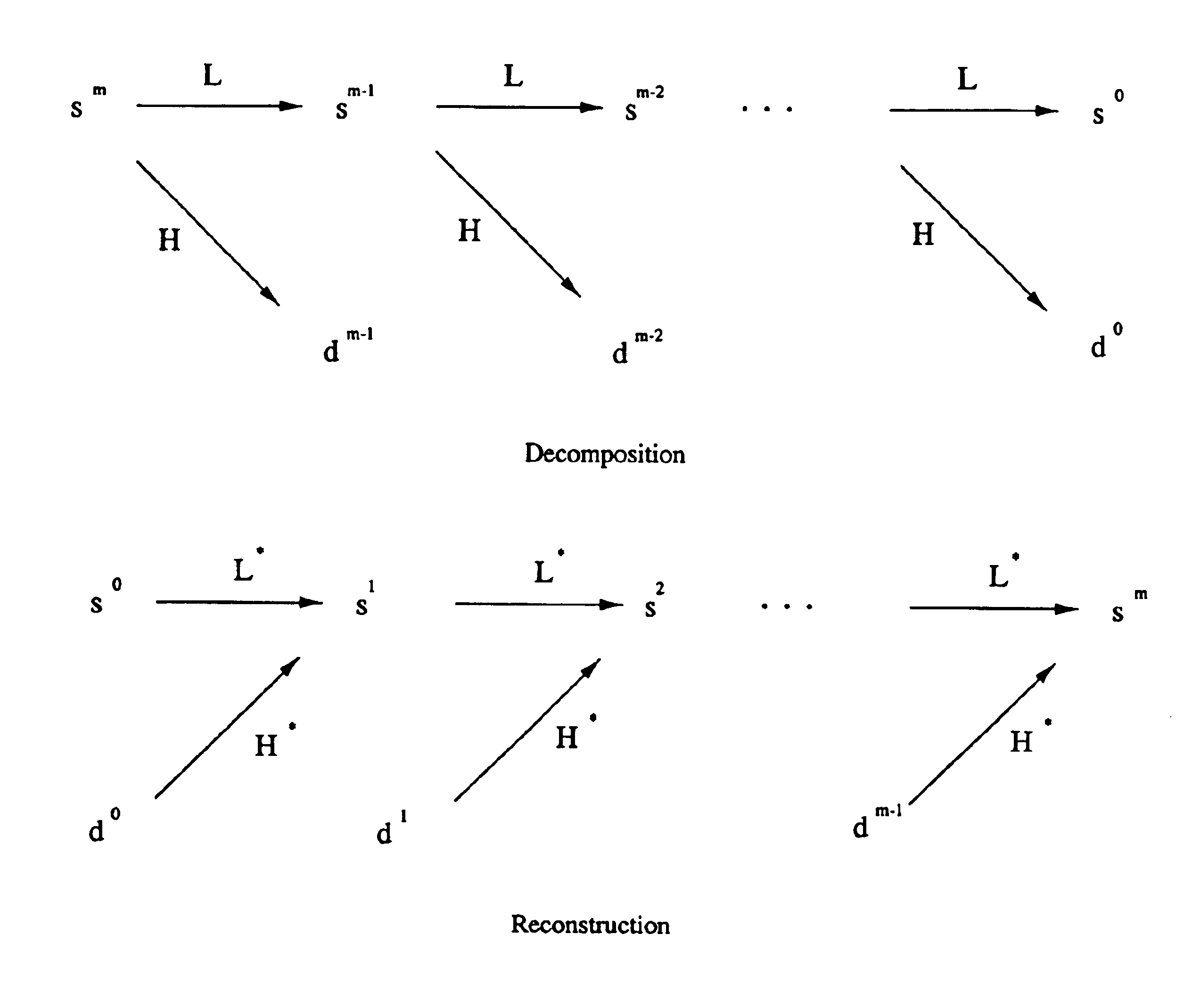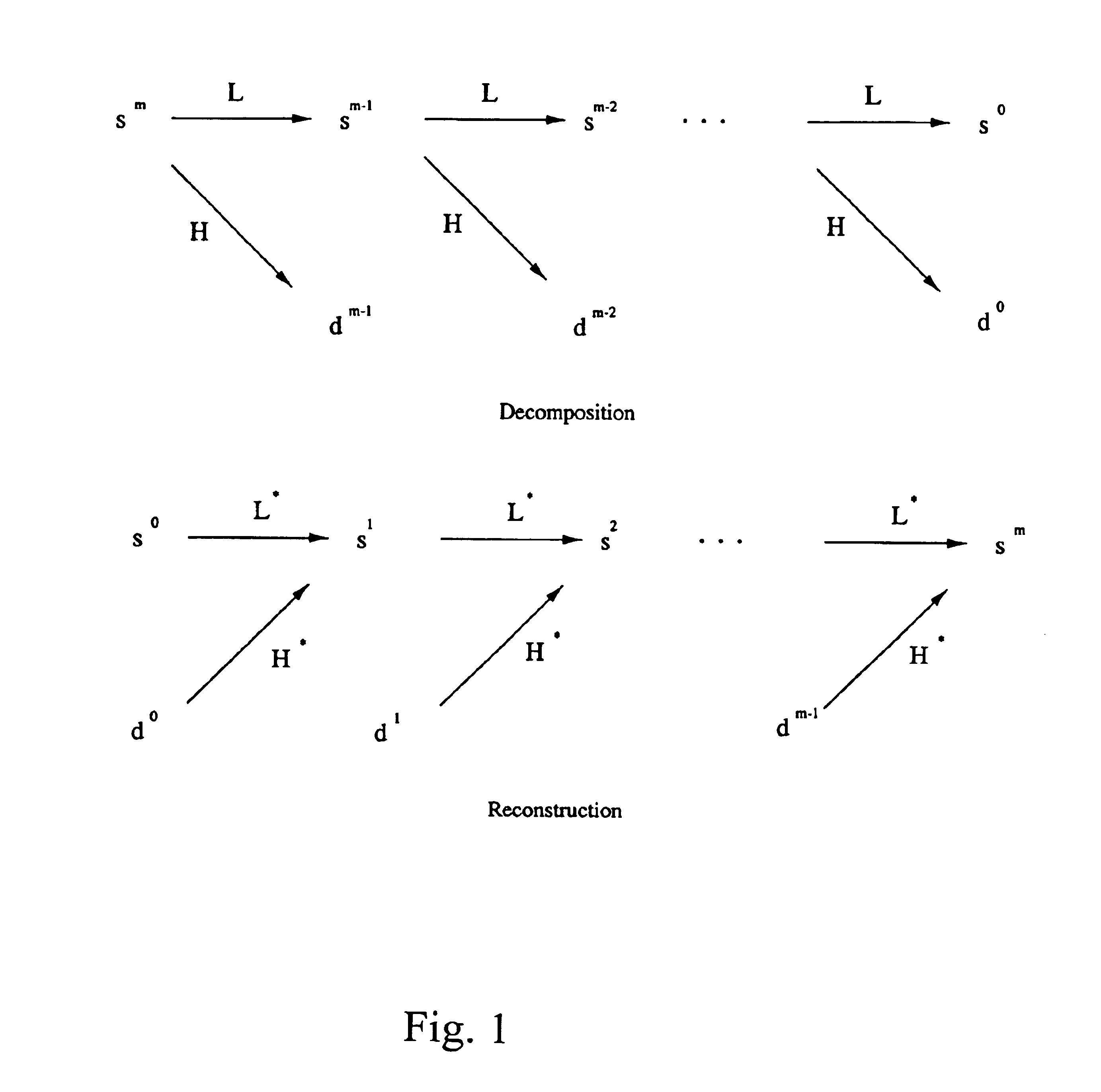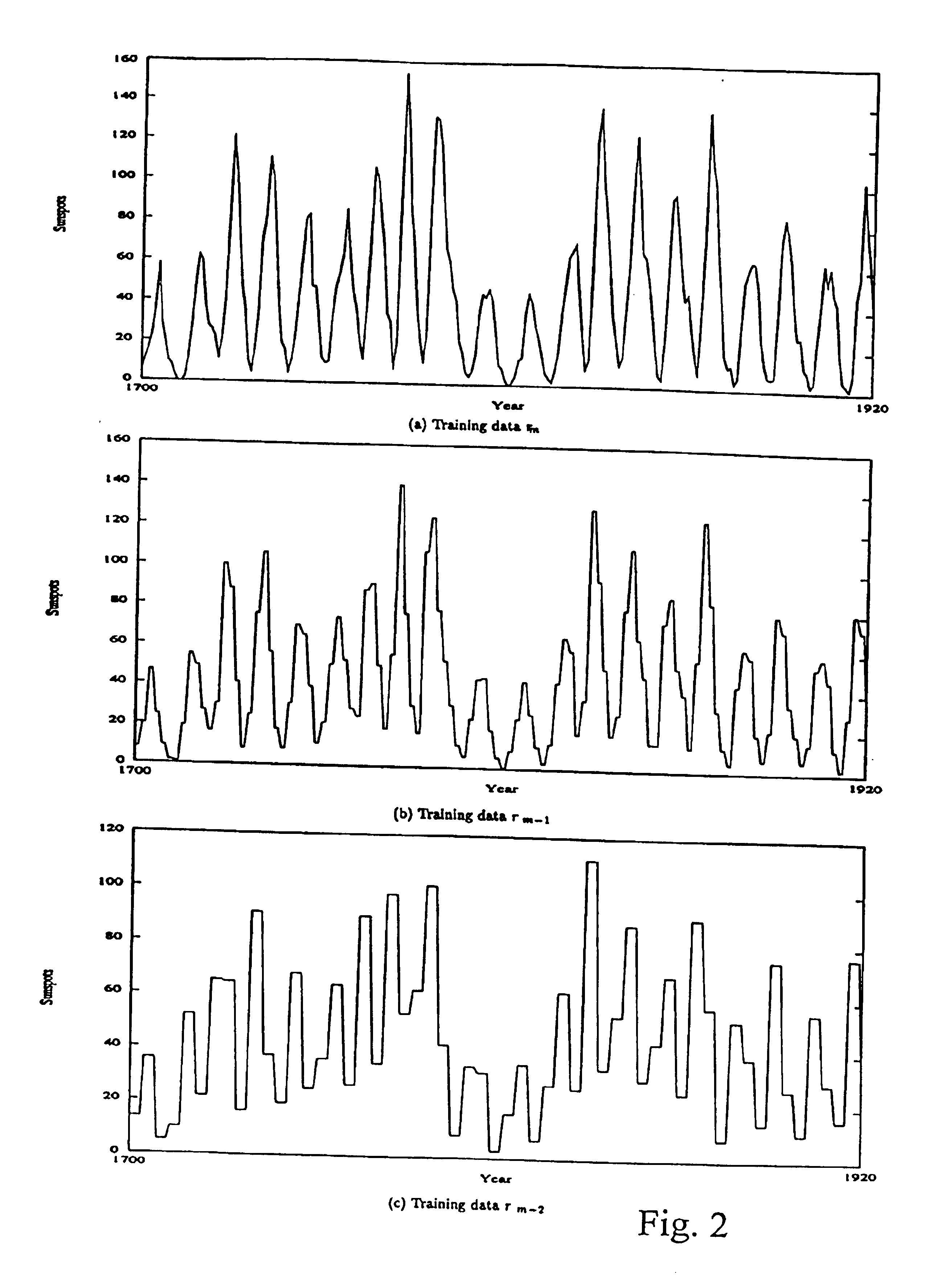Multiresolution learning paradigm and signal prediction
a learning paradigm and multi-resolution technology, applied in the field of learning process of neural networks, can solve the problems of insufficient approach for difficult learning problems, inability to obtain a sufficiently large training set, poor performance of traditional models, etc., and achieve good generalization ability and good generalization
- Summary
- Abstract
- Description
- Claims
- Application Information
AI Technical Summary
Benefits of technology
Problems solved by technology
Method used
Image
Examples
Embodiment Construction
[0042]A detailed description of a preferred embodiment will now be provided so as to illustrate the concepts and ideas of the invention. The description of this preferred embodiment is provided by way of explanation only, and the extent and scope of the invention is to be interpreted not only based on this preferred embodiment, but in accordance with the claims included herewith.
[0043]This new learning concept and paradigm may be referred to as “multiresolution learning”, and it significantly improves the generalization ability of neural networks and, therefore, improves their effectiveness on difficult signal prediction problems. To demonstrate the efficacy of multiresolution learning, the benchmark sunspot series as well as the more challenging problem of real-world, high-speed network traffic prediction are investigated.
Wavelet Representation of Signals
[0044]Wavelet theory provides a mathematical tool for hierarchically decomposing signals and, hence, an elegant technique for rep...
PUM
 Login to View More
Login to View More Abstract
Description
Claims
Application Information
 Login to View More
Login to View More - R&D
- Intellectual Property
- Life Sciences
- Materials
- Tech Scout
- Unparalleled Data Quality
- Higher Quality Content
- 60% Fewer Hallucinations
Browse by: Latest US Patents, China's latest patents, Technical Efficacy Thesaurus, Application Domain, Technology Topic, Popular Technical Reports.
© 2025 PatSnap. All rights reserved.Legal|Privacy policy|Modern Slavery Act Transparency Statement|Sitemap|About US| Contact US: help@patsnap.com



